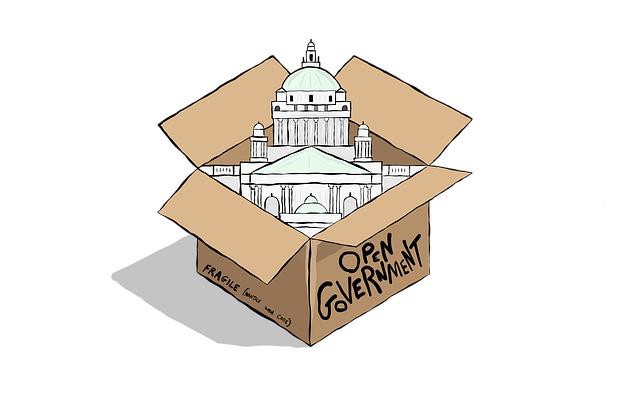- Introduction
- Environmental Policies
- Social Equity
- Economic Prosperity
- Transparency & Accountability
- Conclusion
- FAQs
Introduction
Sustainable governance is a concept that focuses on incorporating sustainable practices and principles into the decision-making processes and governance structures of organizations, institutions, and governments. It involves ensuring that policies and actions are not only effective in the short term but also consider their long-term impact on the environment, society, and economy.
Environmental Policies
Sustainable governance emphasizes the implementation of environmental policies that promote resource conservation, energy efficiency, and the reduction of carbon emissions. By integrating environmental considerations into governance frameworks, organizations can mitigate the impact of their operations on the planet and contribute to a more sustainable future.

(Image: Pixabay/@Alexas_Fotos)
Furthermore, sustainable governance encourages the adoption of renewable energy sources, waste management strategies, and sustainable land use practices to ensure the preservation of natural resources for future generations. By prioritizing environmental sustainability in decision-making processes, organizations can play a significant role in combating climate change and promoting ecological resilience.
Through transparent and inclusive environmental policy-making, stakeholders can actively participate in shaping sustainable governance practices that prioritize the protection of the environment and foster a culture of environmental responsibility.
Social Equity
In addition to environmental considerations, sustainable governance encompasses the promotion of social equity and inclusivity within organizations and communities. By integrating principles of social justice and human rights into governance structures, sustainable governance aims to address inequalities and ensure fair and equal access to resources and opportunities.

(Image: Pixabay/@geralt)
Moreover, equitable governance practices seek to empower marginalized groups, promote diversity and inclusion, and create policies that prioritize the well-being and welfare of all individuals within society. By fostering social cohesion and solidarity, sustainable governance can contribute to building resilient and thriving communities.
Through the implementation of social programs, education initiatives, and poverty alleviation measures, organizations can actively support social equity and inclusivity, thereby creating a more just and equitable society for all members.
Economic Prosperity
Sustainable governance recognizes the importance of balancing economic prosperity with environmental and social considerations to achieve long-term sustainability and stability. By integrating sustainable practices into economic policies and business models, organizations can drive innovation, create new economic opportunities, and promote responsible consumption and production.

(Image: Pixabay/@anncapictures)
Furthermore, sustainable governance supports the transition towards a circular economy, where resources are used efficiently, waste is minimized, and products are designed for longevity and recyclability. By rethinking traditional economic models and embracing sustainable practices, organizations can contribute to building a more resilient and prosperous economy.
Collaborative partnerships between the public and private sectors, as well as engagement with local communities and stakeholders, are essential for fostering economic prosperity through sustainable governance. By working together towards common goals and shared values, organizations can drive sustainable economic growth and development.
Transparency & Accountability
Transparency and accountability are key pillars of sustainable governance, ensuring that decision-making processes are open, honest, and responsive to the needs and concerns of stakeholders. By promoting transparency in governance structures and practices, organizations can foster trust, credibility, and stakeholder engagement.

(Image: Pixabay/@NewUnion_org)
Accountability mechanisms, such as monitoring, evaluation, and reporting, play a crucial role in ensuring the effectiveness and impact of sustainable governance initiatives. By holding decision-makers accountable for their actions and commitments, organizations can enhance their credibility and reputation in the eyes of stakeholders and the public.
Moreover, transparency and accountability promote ethical behavior, integrity, and responsible leadership within organizations, laying the foundation for a culture of trust and integrity that is essential for sustainable governance practices to thrive.
Conclusion
In conclusion, sustainable governance is a holistic approach that integrates environmental, social, and economic considerations into governance structures and decision-making processes. By prioritizing sustainability, equity, transparency, and accountability, organizations can contribute to building a more resilient, inclusive, and prosperous society for present and future generations.
FAQs
What is sustainable governance?
Sustainable governance is a concept that focuses on incorporating sustainable practices and principles into the decision-making processes and governance structures of organizations, institutions, and governments.
Why is social equity important in sustainable governance?
Social equity is important in sustainable governance to promote fairness, inclusivity, and equal access to resources and opportunities within society, fostering a more just and equitable community for all individuals.
How can organizations promote transparency and accountability in sustainable governance?
Organizations can promote transparency and accountability in sustainable governance by implementing open and honest decision-making processes, establishing accountability mechanisms, and fostering a culture of ethical behavior and responsible leadership.

